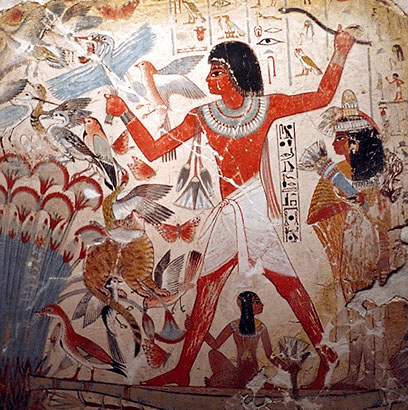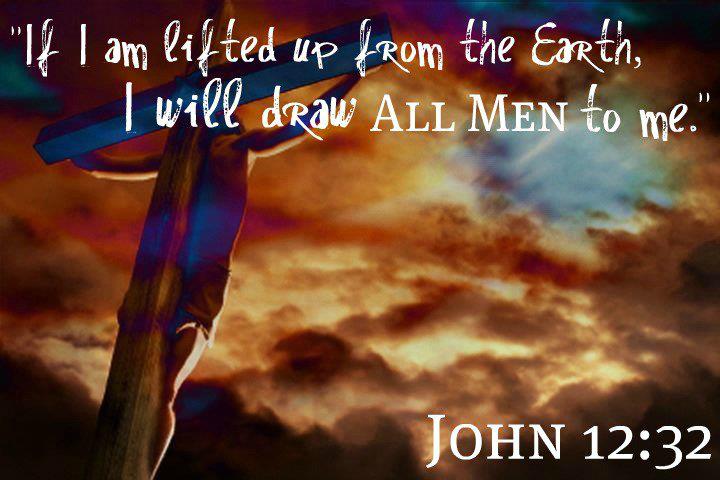So the advice was good in the eyes of Pharaoh and the eyes of all his servants. And Pharaoh said to his servants, "can we find such a one as this, a man in whom is the Spirit of God?" Then Pharaoh said to Joseph, "inasmuch as God has shown you all this, there is no one as discerning and wise as you. You shall be over my house, and all my people shall be ruled according to your word; only in regard to the throne will I be greater than you." And Pharaoh said to Joseph, "see, I have set you over all the land of Egypt." Then Pharaoh took his signet ring off his hand and put it on Joseph's hand; and he clothed him in garments of fine linen and put a gold chain around his neck. And he had him ride in the second chariot which he had; and they cried out before him, "bow the knee!" So he set him over all the land of Egypt. Pharaoh also said to Joseph, "I am Pharaoh, and without your consent no man may lift his hand or foot in all the land of Egypt." And Pharaoh called Joseph's name Zaphnath- Paaneah. And he gave him as a wife Asenath, the daughter of Poti-Pherah priest of On. So Joseph went out over all the land of Egypt. Joseph was thirty years old when he stood before Pharaoh king of Egypt. And Joseph went out from the presence of Pharaoh, and went throughout all the land of Egypt. Now in the seven plentiful years the ground brought forth abundantly. So he gathered up all the food of the seven years which were in the land of Egypt, and laid up the food in the cities; he laid up in every city the food of the fields which surrounded them. Joseph gathered very much grain, as the sand of the sea, until he stopped counting for it was immeasurable. And to Joseph were born two sons before the years of famine came, whom Asenath, the daughter of Poti-Pherah priest of On, bore to him. Joseph called the name of the first born Manasseh: "for God has made me forget all my toil and all my father's house." And the name of the second he called Ephraim: "for God has caused me to be fruitful in the land of my affliction." Then the seven years of plenty which were in the land of Egypt ended, and the seven years of famine began to come, as Joseph had said. The famine was in all lands, but in all the land of Egypt there was bread. So when all the land of Egypt was famished, the people cried to Pharaoh for bread. Then Pharaoh said to all the Egyptians, "go to Joseph; whatever he says to you, do." The famine was over all the face of the earth, and Joseph opened all the storehouses and sold to the Egyptians. And the famine became severe in the land of Egypt. So all countries came to Joseph in Egypt to buy grain, because the famine was severe in all lands. Genesis 41: 37-57 NKJV
Joseph has lifted up God before Pharaoh, and Pharaoh now credits God in lifting up Joseph, "a man in whom is the Spirit of God." The world's wisdom did not hold up, but the message of young outsider, a slave and a prisoner, was tied to a sovereign God. In acknowledging God, there becomes none wiser or more discerning than the slave. Those bearing the title, tradition or practice of wise men are only as good as the source from which their knowledge comes. If it denies the One, true God, at its premise, then it is a house built without a foundation. All of our models will become man based and man made. They will seem wise to us, and our hearts will fill in the spaces, making the necessary connections to show congruity. We are easily deceived. Joseph avoids this by listening to and obeying the words of God.
There are always those who will hate, and as Joseph is now elevated to second in command, it is certain that he is now under the microscope. He carries out his plan, and is able to store up an immense amount of grain in view of the coming famine. What if those watching do not see it come? Joseph could appeal to a change of heart from God, or try other means of deception, like all false prophets, but no need. He has heard from God and the famine most certainly comes to pass. Egypt is prepared, and when the bread of their houses runs out, Pharaoh tells the people, "go to Joseph; whatever he says to you, do."
Joseph also has two sons during the first seven years, and their names are again testament to the relationship between a young man and his God. He is truly a blessing, an amazing life indeed, so why is it so hard for us to acknowledge God? Why is it that we give credence to the beliefs that receive the most air time? Why is it so easy to fall in love with sounds of our own voices, or worship things given and made? Whether fat or lean of life, could this time that we're now in be a famine? Remember, man cannot live by bread alone. He needs the words of God.
Joseph has lifted up God before Pharaoh, and Pharaoh now credits God in lifting up Joseph, "a man in whom is the Spirit of God." The world's wisdom did not hold up, but the message of young outsider, a slave and a prisoner, was tied to a sovereign God. In acknowledging God, there becomes none wiser or more discerning than the slave. Those bearing the title, tradition or practice of wise men are only as good as the source from which their knowledge comes. If it denies the One, true God, at its premise, then it is a house built without a foundation. All of our models will become man based and man made. They will seem wise to us, and our hearts will fill in the spaces, making the necessary connections to show congruity. We are easily deceived. Joseph avoids this by listening to and obeying the words of God.
There are always those who will hate, and as Joseph is now elevated to second in command, it is certain that he is now under the microscope. He carries out his plan, and is able to store up an immense amount of grain in view of the coming famine. What if those watching do not see it come? Joseph could appeal to a change of heart from God, or try other means of deception, like all false prophets, but no need. He has heard from God and the famine most certainly comes to pass. Egypt is prepared, and when the bread of their houses runs out, Pharaoh tells the people, "go to Joseph; whatever he says to you, do."
Joseph also has two sons during the first seven years, and their names are again testament to the relationship between a young man and his God. He is truly a blessing, an amazing life indeed, so why is it so hard for us to acknowledge God? Why is it that we give credence to the beliefs that receive the most air time? Why is it so easy to fall in love with sounds of our own voices, or worship things given and made? Whether fat or lean of life, could this time that we're now in be a famine? Remember, man cannot live by bread alone. He needs the words of God.



No comments:
Post a Comment
Note: Only a member of this blog may post a comment.